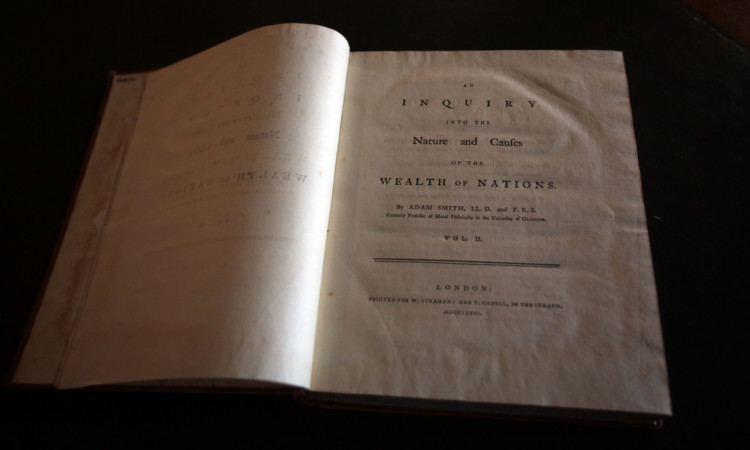A rare first edition of Adam Smith’s The Wealth Of Nations has sold at auction for £46,000.
Published in 1776, the book’s full title is An Inquiry Into The Nature And Causes Of The Wealth Of Nations and explores the division of labour, productivity and free markets.
The edition, expected to fetch between £30,000 and £50,000, was sold to an anonymous telephone bidder after a “fierce competition” at Lyon & Turnbull auctioneers in Edinburgh.
The work by Scottish economist and philosopher Smith reflects on economics at the beginning of the industrial revolution and is one of the world’s first assessments of what creates wealth within a nation state.
The Wealth Of Nations, as it is commonly known, helped earn its Fife-born author the label of the father of modern economics and is held in high regard by many economists.
Simon Vickers, book specialist at Lyon & Turnbull, said: “There was fierce competition from the internet and phone bidders. This is such a significant book in the history of economics; first editions do not readily appear on the market.
“In it, Smith argued it increases our prosperity just as surely as do agriculture or manufacture. A nation’s wealth is not the quantity of gold and silver in its vaults, but the total of its production and commerce, what today we would call gross national product.”
Smith was an important figure in the Scottish Enlightenment and is considered by many to be both a great moral philosopher and pioneer of political economy.
He was born in Kirkcaldy where he returned to write The Wealth Of Nations over a period of 10 years.
The sale was part of an auction of rare books, maps and manuscripts that also saw a letter written and signed by Charlotte Bronte sell for £24,000.
